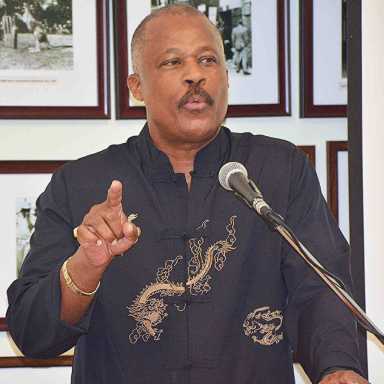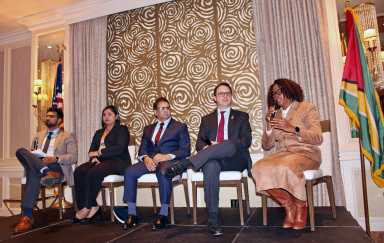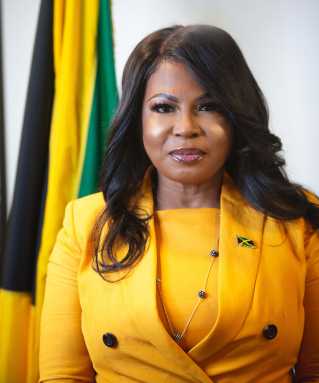Listeners:
Top listeners:
00:00
00:00
volume_up
chevron_left
-
play_arrow
RadioJLR Just Press Play

share
close
A major delegation from CARICOM’s Reparation Commission is visiting the UK this week to meet lawmakers and officials about slavery, colonialism, and their lasting effects. CRC Chair Prof. Sir Hilary Beckles is leading the six-person delegation,
About 12.5 million people were kidnapped and trafficked on European ships, then sold into slavery in the Americas from the 15th to the 19th centuries. Advocates say these systems left deep, lasting social and economic impacts, seen today in structured racism and underdevelopment in former colonies.
The global movement for reparatory justice has accelerated in recent years, the statement revealed. Thus, this action and others came about in large part due to actions from the CARICOM 15 member states, including Jamaica, Barbados, and Trinidad and Tobago, and supported by the African Union (AU).
The CARICOM 10-point reparations plan calls for a formal apology, debt cancellation, education and cultural rehabilitation programs, and monetary compensation. The African Union is also developing its own framework.
The push for reparations faces increasing opposition; many European governments have rejected the idea. Some leaders argue that present-day institutions should not be held accountable for historical injustices. At last year’s Commonwealth Summit in Samoa, British Prime Minister Keir Starmer opted to “look forward” rather than engage in lengthy debates over reparations.
Yet the summit concluded with an unexpected shift: leaders of the 56-nation Commonwealth, chaired by Britain’s King Charles, agreed that the time had come for a formal discussion on the issue.
The CARICOM delegation’s visit, scheduled Nov. 17 -20, 2025, to deepen partnership in the United Kingdom and “promoted a joint program of public education and engagement on the reparations agenda,” according to a media advisory update.
This decision comes as new data reveal gaps in the British public’s understanding of the nation’s colonial history. A 2025 poll commissioned by The Repairs Campaign found 85% of respondents were unaware that Britain forcibly transported more than three million Africans to the Caribbean during the Transatlantic Slave Trade.
Written by: Adm
Rate it
© 2025. All Rights Reserved by Radio-JLR


